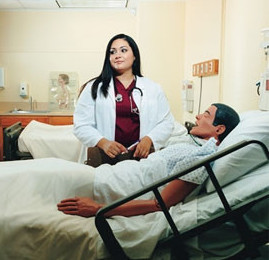Sadly, I was
recently a victim of a DEA scam. I remember reading emails about it sometime
last year, but it seems so real when you are a part of it. I just wanted to share
my story to prevent other nurse practitioners and providers from being scammed.
I was at
work one day when I received a phone call from the “Illinois Medical Board.” I
thought it was strange since I am licensed through the Illinois Board of
Nursing. The man on the phone said he was calling me about an ongoing investigation
about my DEA prescribing methods.
When working
in Miami as a full-timer, I had been a victim of Medicare fraud. Where some mom
and pop pharmacy used my NPI number to forge fake prescriptions to bill Medicare
for. Thus, I wasn’t too surprised to receive this phone call.
The man
insisted he call me on my cell phone to be on a “secure line” to discuss the
investigation further. He said the authorities found a car with a bunch of
narcotics, my name as the prescriber. They also found over $2million dollars
total under my name in several bank accounts.
As a result my
nursing licenses were going to be suspended; they were going to freeze all of
my assets; and there is a warrant out for my arrest.
I started
freaking out inside because this seemed so extreme, especially for someone who wasn’t
even involved. I convinced him that it wasn’t me and asked what I could do
prevent these things from happening.
He told me the
FBI really wants to arrest me, but the medical board did their due diligence
and did a mini investigation themselves. The conclusion of this investigation
is that someone had stolen my identity. They said it could be anyone I work
with or a family or friend, so not to tell anyone about this conversation. In
the mean time, they faxed me a paper saying my nursing licenses have been
suspended unless I cooperate with the investigation.
I agreed to cooperate,
so the man called the “FBI” as a three way and pleaded my case. It seemed a bit
sketchy but then the FBI agent told him to send me a government agreement. The man
faxed me this agreement to cooperate with the investigation and I read that
they were requesting a $20,000 US government bond.
Once I saw
that they were requesting money, I realized it had to be a scam. I proceeded by
googling ‘DEA Scam US bond’ and found that previous scams included this same amount
of requested money. I immediately hung up the phone, and of course the scammers
called me back a million times.
I felt such
a huge weight come off my shoulders. Imagine?! Not being able to work, losing
all of your money, and facing prison time for a crime you did not commit??
Of course,
looking back it seemed like extreme measures without being interviewed prior.
But then again, innocent people are prosecuted all of the time. I also asked
why the DEA agents didn’t storm my work place. The man said they didn’t want to
have the person who stole my identify suspicious or they will flee.
I told my
co-workers what happened and apparently one of the Physicians had just been
scammed a few months back. He agreed that it seemed so real and he was also
freaking out during the phone call. It wasn’t until he called HR and his lawyer
that he realized it was a just a scam.
It’s so unfortunate
that people are trying to take advantage of medical professionals. But just
wanted to share my story so you wont waste your time if you are ever called.
Like this:
Like Loading...












